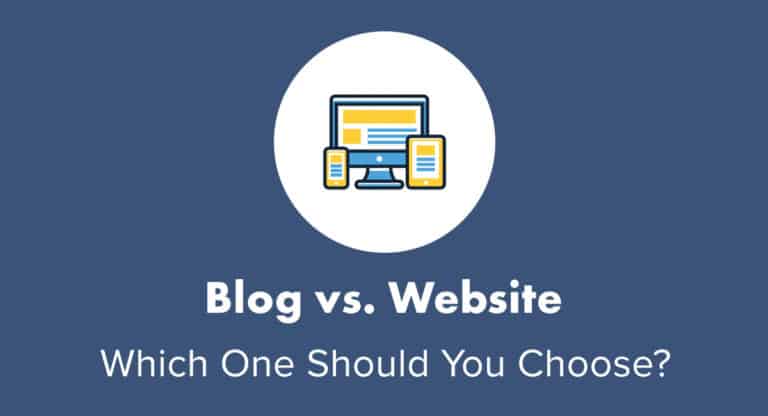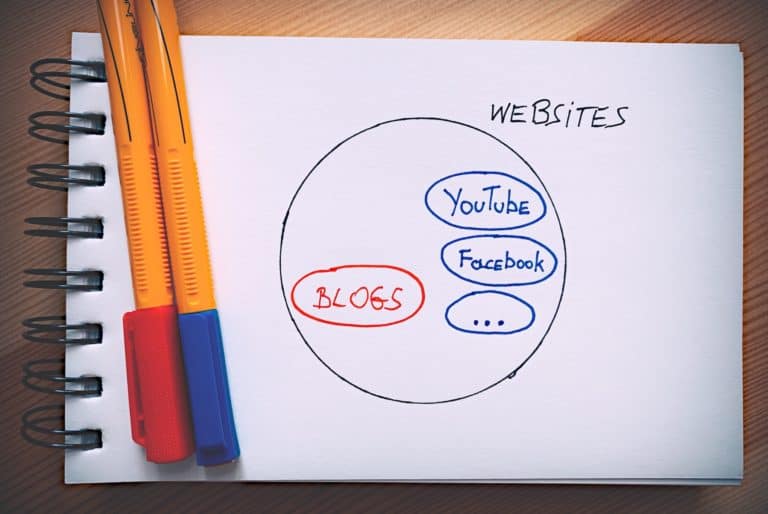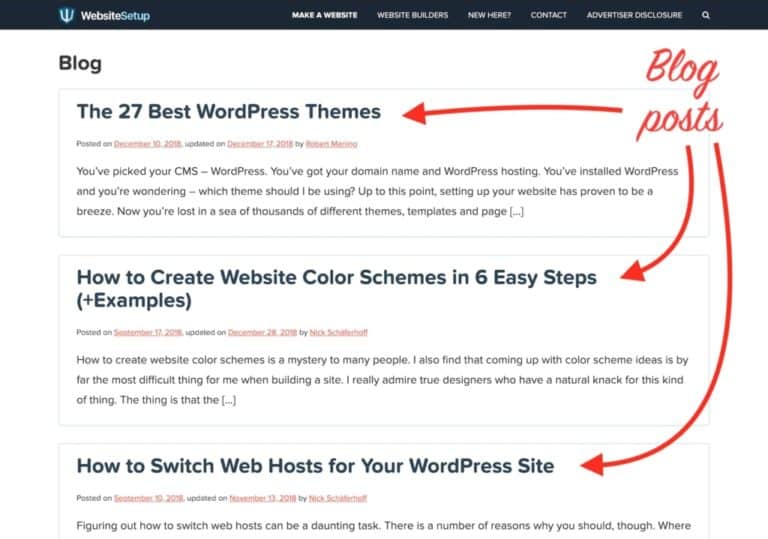

There are two questions that we’re asked very frequently. Both revolving around the topic of blogging: “blog vs. website – what’s the difference between them?” and “should I get a blog or a website?”
It’s no surprise that people struggle with these things. The whole blog vs. website riddle can be confusing if you’ve never experimented with the topic before.
In this short resource, we’ll show you exactly what the differences between blogs and websites are, how to decide which one you need, what the costs are, and how to make a blog or a website on your own and hassle-free.
Okay, this might be surprising, but let’s start with the following statement:
Think of it this way:

In this light, a blog is a type of website.
To make this easier to understand, let’s begin at the center of the issue:
If you go to your Chrome or Safari and enter any web address – like websitesetup.org – you’ll end up on a website. In fact, navigating anywhere at all from your web browser will land you on some kind of website. This means that Google is also a website, so is Facebook, and YouTube as well.
Websites are identified by their domain names – web addresses. As you can see, this website’s address is websitesetup.org. Facebook’s address is facebook.com, and so on.
Okay, so what’s the difference between a blog vs. website, specifically?
The graph above tells us that blogs are a subset of websites. This is somewhat like cars vs. race cars. Meaning, they all have four wheels and an engine, but the purpose of a race car is much more specific.
A blog is a type of website where the main focus is on prominently showcasing individual blog articles (called blog posts) by displaying them on the homepage of the blog in reverse chronological order (newest first).on.
Though this might sound convoluted at first, the idea is very simple in practice. The goal is to make sure that whoever visits a blog, sees the most recent blog post at the very top of the homepage.on.
Here’s what this usually looks like:.on.

The person who’s running the blog – be it a business owner or an individual – can share stories/news/articles that are the most relevant at a given time.
With that being said, blogs are predominantly text-based. Meaning, the focus is on written articles more than on the visuals – such as images, etc.
Blogs also run on what’s called a CMS (Content Management System). This is just a fancy name for a tool that enables you to edit your blog content similarly to how you’d do it in MS Word or Google Docs. This CMS makes managing your content easier since you don’t need any knowledge of web development or programming to take care of the blog effectively.
On the other hand, if we look at a generic website, there’s no such requirement. Websites can present their content in whatever way. The content can also be anything, from text-only pages to images, to videos, to products in an online store, and so on. Websites can use a CMS, too. But they can also use static, HTML-only documents built by a web developer.
With that being said, let’s answer the following:
Before we help you tackle this question, let’s start somewhere else.
In 2019, you really don’t need to think of “blog vs. website” as either/or.
The modern tools that we have at our disposal allow us to have both at the same time. The way to get that is to use a powerful website CMS, which will allow you to set up a blog as part of your website. So, at the end of the day, what you get is a functional website with blog functionality built-in.
For example, the most powerful and popular such CMS is called WordPress, and it’s actually what the website you’re reading right now uses.
Just to recap; don’t think of this as having to choose between a blog or a website. Instead, build your site on WordPress, and then decide whether you want to include a blog component later on. It’s a more future-proof solution than anything else.
Alternatively, here are some other website builders if you are pretty sure that you’re not going to need a blog anyway.
you want contact me so fill form and send me
IF YOU HAVE ANY QUESTION CONTACT MY GMAIL ACCOUNT OR MESSAGE MY FACEBOOK ACCOUNT